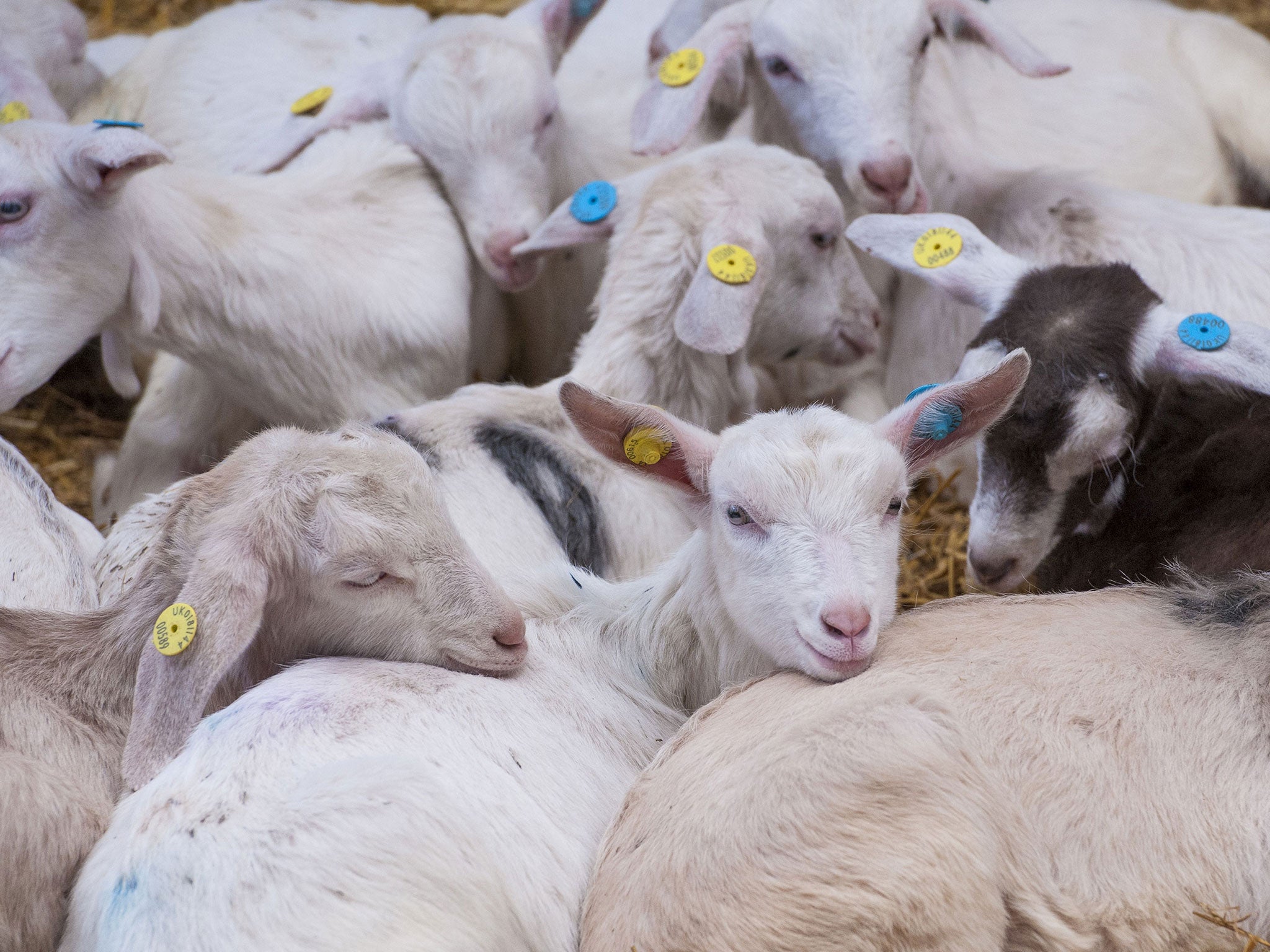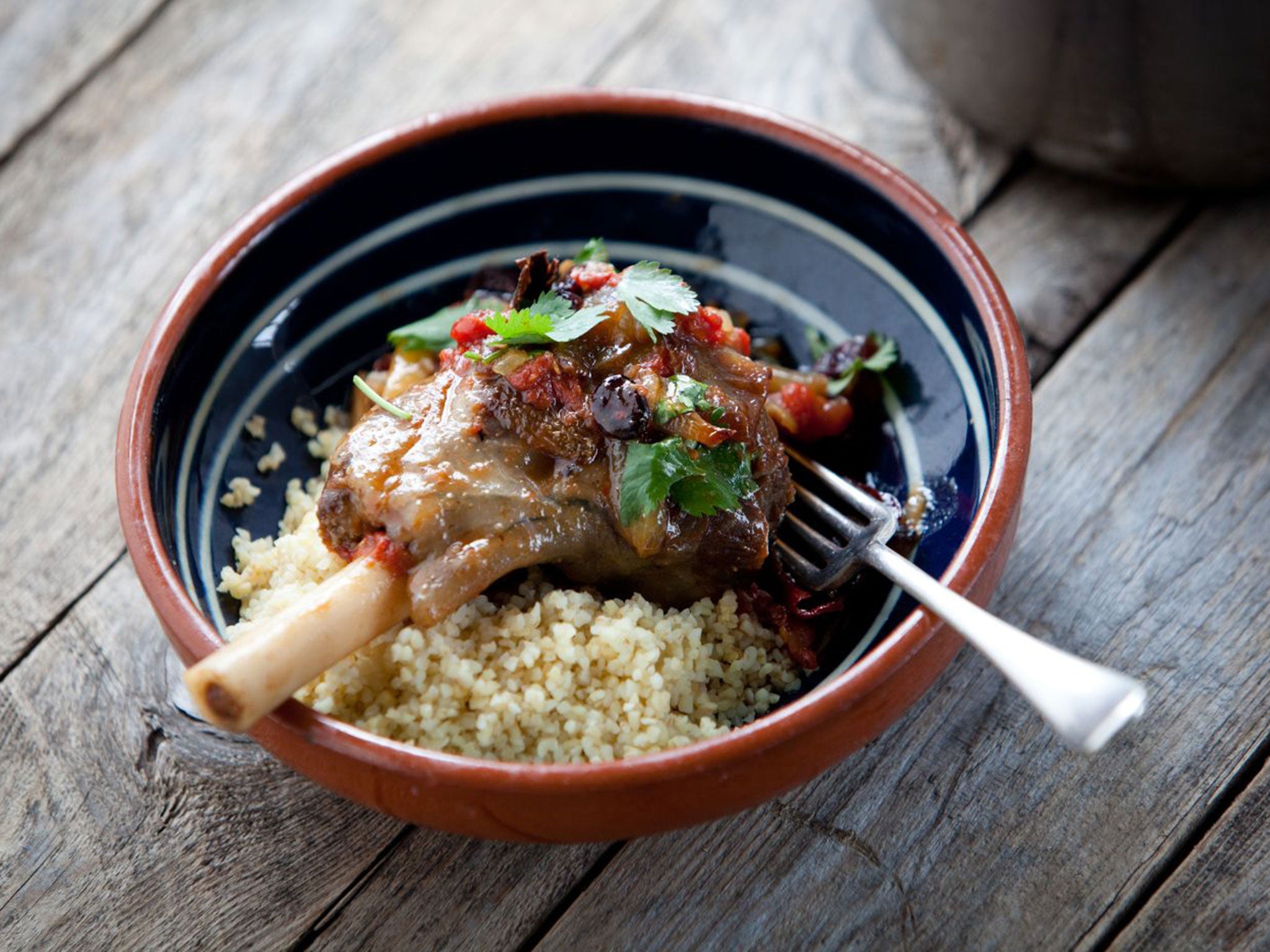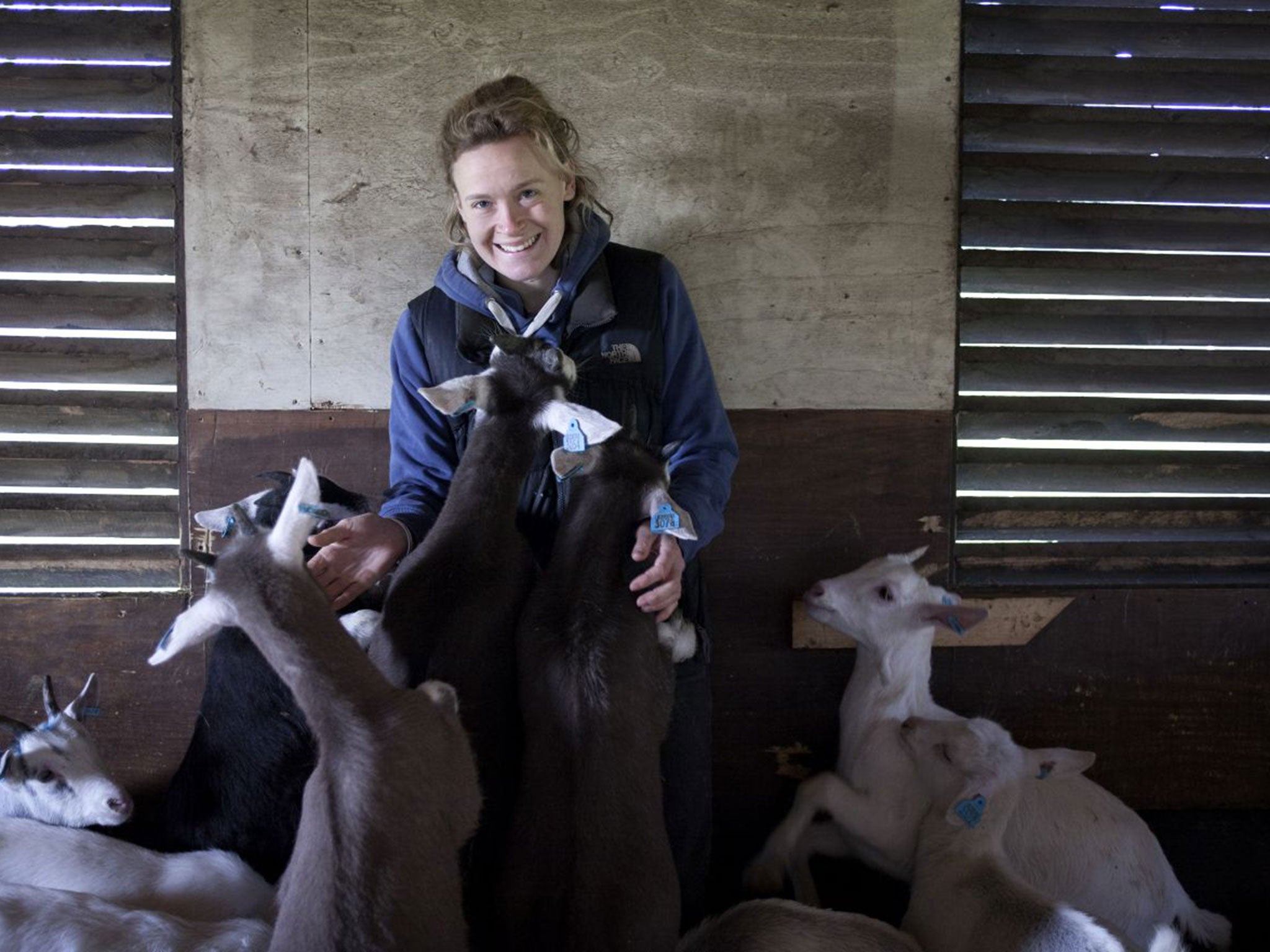Goat meat: Why the days of kid being a novelty dish are coming to an end
A new push by breeders, campaigners and chefs to raise awareness might finally tip the balance and popularise kid meat

Your support helps us to tell the story
From reproductive rights to climate change to Big Tech, The Independent is on the ground when the story is developing. Whether it's investigating the financials of Elon Musk's pro-Trump PAC or producing our latest documentary, 'The A Word', which shines a light on the American women fighting for reproductive rights, we know how important it is to parse out the facts from the messaging.
At such a critical moment in US history, we need reporters on the ground. Your donation allows us to keep sending journalists to speak to both sides of the story.
The Independent is trusted by Americans across the entire political spectrum. And unlike many other quality news outlets, we choose not to lock Americans out of our reporting and analysis with paywalls. We believe quality journalism should be available to everyone, paid for by those who can afford it.
Your support makes all the difference.It’s two years since kid goat was heralded as the meat we would all soon be eating. Chefs and restaurateurs extolled the virtues of its tender, lean cuts. But consumers have yet to take up cooking with goat in large numbers. All of which means that up to 40,000 young male goats are still killed at birth each year and the carcasses thrown away, because they play no part in the booming market for dairy products based on goat’s milk.
Since rearing the animals is costly for farmers, this huge wastage – only 1 per cent of billy kids are kept for breeding – had seemed unavoidable. But a new push by breeders, campaigners and chefs to raise awareness and supermarkets which could begin to stock the meat, might finally tip the balance.
Celebrity chefs such as Jamie Oliver are pledging their support for a new drive to popularise kid meat. It’s delicious, healthy and sustainable, they say. It contains less cholesterol than chicken, more iron than beef and is not forbidden by any of the main religions.
Lizzie Dyer, a Cotswolds farmer, takes a personal pride in being involved in the campaign to get us all eating goat. “I wanted to farm sustainably and do something new,” she says. “Having travelled a lot, goat and kid was always something that was interesting to me.”
Dyer, now 28, was 25 when she started her business, Just Kidding, buying unwanted billy kids from dairy farmers and rearing them to be sold as meat.

“I couldn’t believe it when I found out about the sheer wastage that was happening in Britain – all these kids just disposed of on our farms, when I knew that some of London’s restaurants are importing their goats from France.”
Ms Dyer is one of the few farmers who raise her billy kids free range. She currently has around 220 animals on her Cirencester farm, and supplies their meat – the kids are slaughtered when they are six months old – to a growing list of hotels and restaurants.
Baby goats are comparatively expensive to keep; the unique powdered milk substitute required to rear them costs about £1 per day, per goat. As a result, kid is most likely to be found as a delicacy in high-end pubs and restaurants – such as the Michelin-starred Barrafina and Gymkhana. But that is set to change.
The days of kid as a novelty dish are coming to an end, according to James Whetlor, a former chef and the founder of Cabrito, one of the UK’s first suppliers to pick up on the opportunity and provide a link between farm and plate.
“When we started out, it was a huge risk,” he says. “We had some small farmers who were keen but hesitant to spend money raising the animals. Nobody was selling kid meat on a large scale because there was next to zero demand for it.”
Almost four years on, the company is selling between 5,000 and 8,000 kids a year and is working in partnership with the home-delivery company Ocado.
The next step for Whetlor is to bring supermarkets on board, something he hopes will soon be a reality – the company is currently in negotiations with Waitrose.

“There’s a huge increase in interest from people wanting to know where their food has come from, that it’s ethically and sustainably sourced,” he says. “The best thing about kid is that it’s turning what was a waste product into something that is both sustainable and lucrative.”
Ben Prior is head chef at his family restaurant, Ben’s Cornish Kitchen, which has just been voted best restaurant in the Trencherman’s Awards 2016. He met Ms Dyer on a backpacking trip and helped with the launch of Just Kidding. He is now one of her business’s 26 clients. “Whenever I have some [goat] on the menu, we’ll put out a tweet. It always sells out very quickly, and that’s how I know it’s only going to feature more and more in British cuisine.”
Join our commenting forum
Join thought-provoking conversations, follow other Independent readers and see their replies
Comments